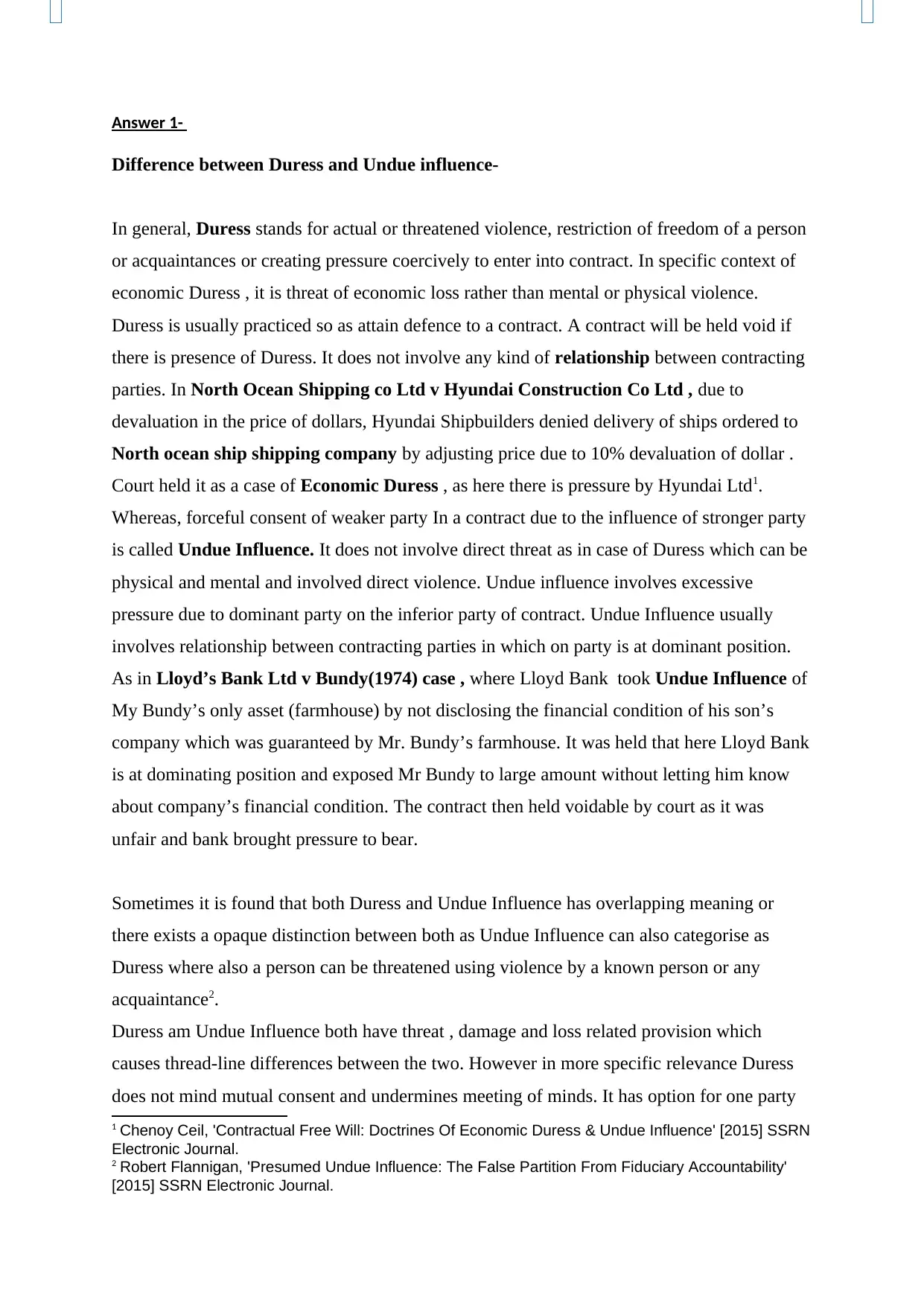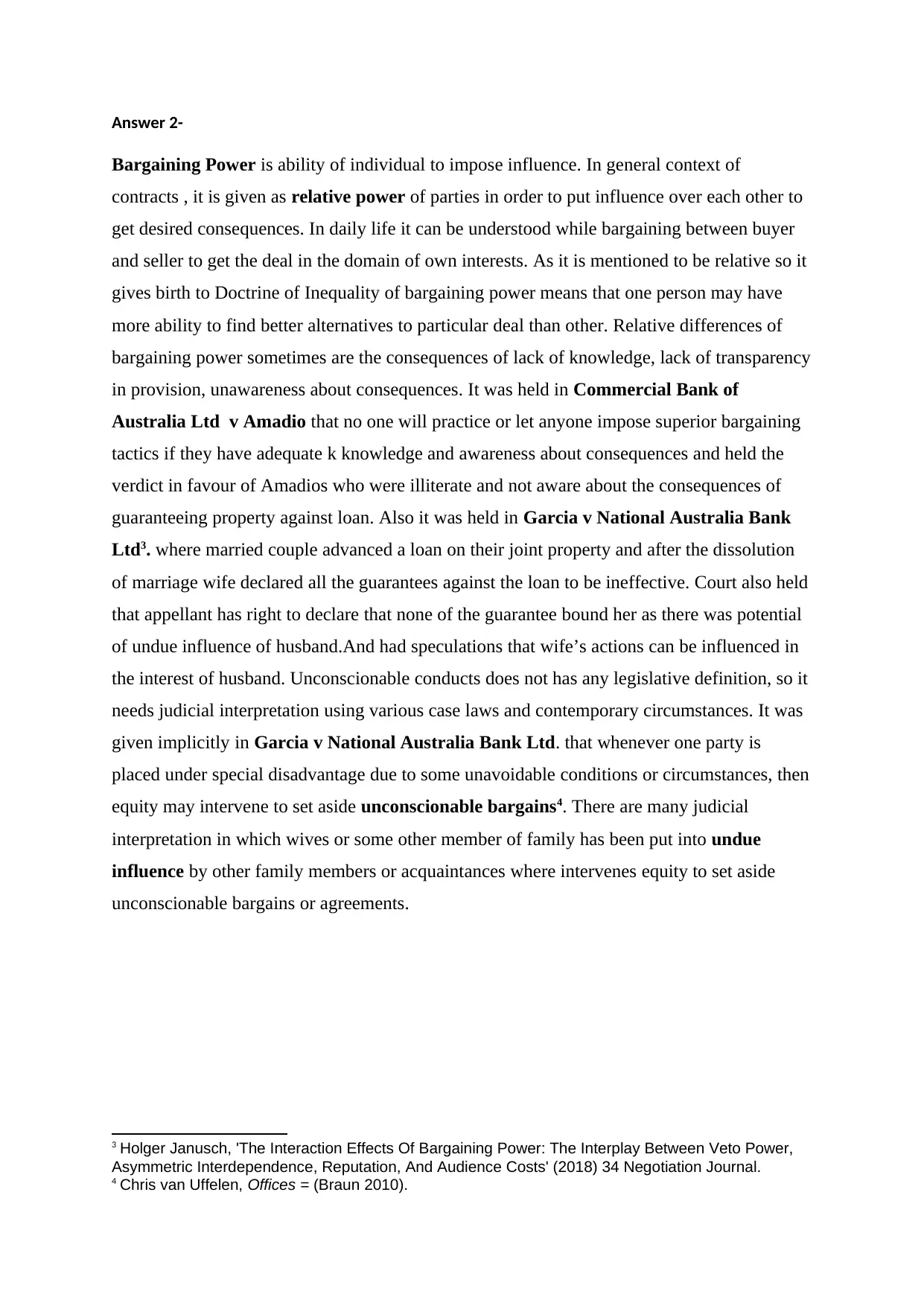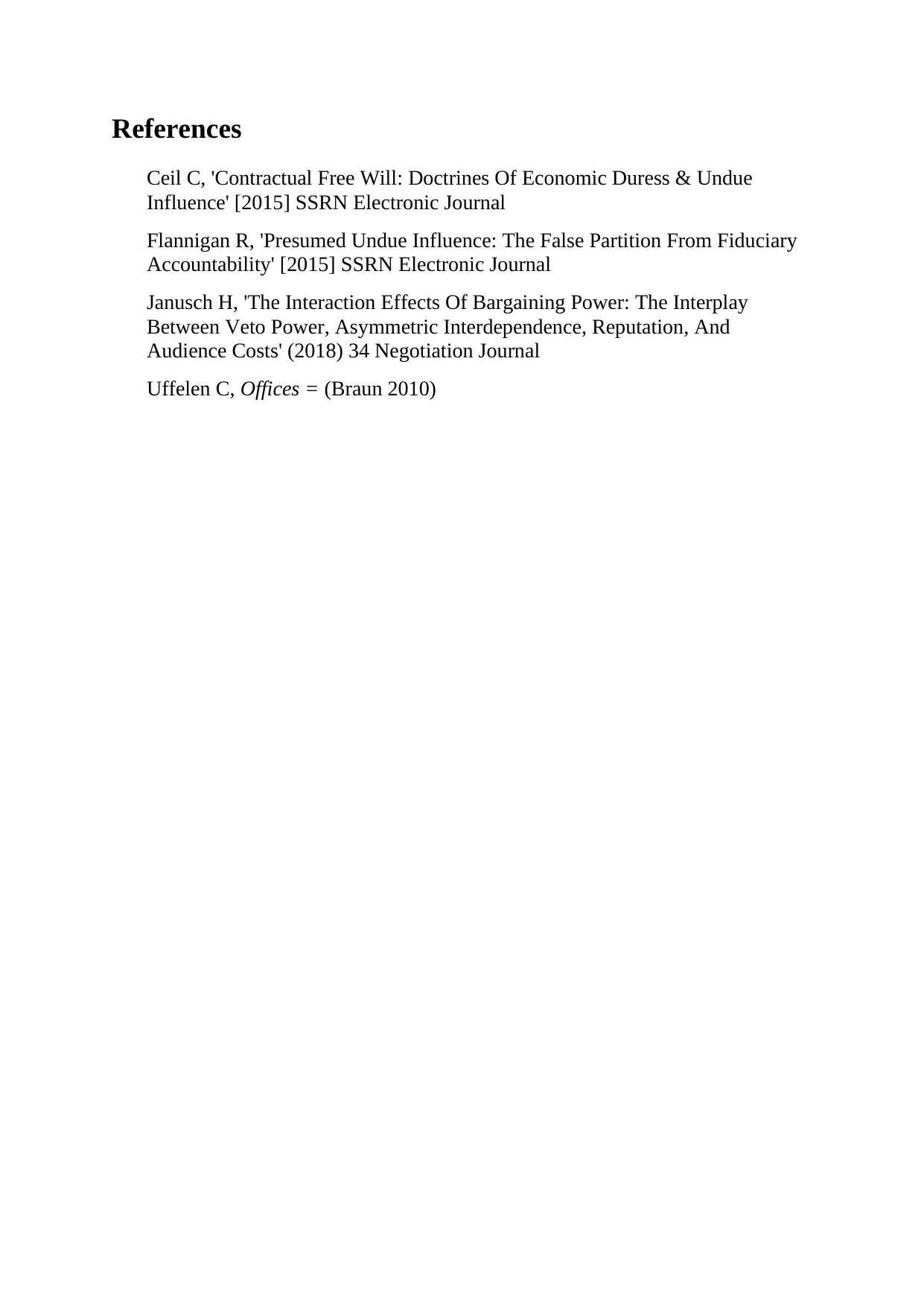Obligation Law Assignment: Differences in Duress and Undue Influence
VerifiedAdded on 2023/01/11
|5
|977
|30
Homework Assignment
AI Summary
This assignment delves into the core legal concepts of duress, undue influence, and bargaining power within the realm of obligation law. It begins by differentiating between duress, which involves actual or threatened violence or economic pressure, and undue influence, which arises from the exploitation of a dominant position in a relationship. The assignment provides a detailed comparison of the two concepts, highlighting their distinctions and overlapping areas. Furthermore, it examines the concept of bargaining power, its implications for contract law, and the doctrine of inequality of bargaining power. The assignment references key case laws such as North Ocean Shipping Co Ltd v Hyundai Construction Co Ltd, Lloyd’s Bank Ltd v Bundy, Commercial Bank of Australia Ltd v Amadio, and Garcia v National Australia Bank Ltd, to illustrate the application of these legal principles. The analysis also touches upon the concept of unconscionable conduct and its judicial interpretations, emphasizing the role of equity in addressing situations where one party is at a disadvantage.
1 out of 5











![[object Object]](/_next/static/media/star-bottom.7253800d.svg)